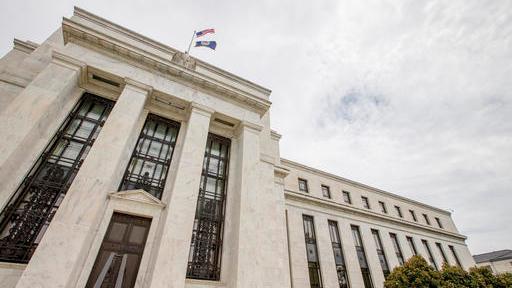Was the Fed's December interest rate hike a mistake?
President Trump has repeated the claim again and again: The Federal Reserve made a mistake by raising interest rates in December, the fourth time that policymakers at the U.S. central bank did so last year.
The Fed’s dovish pivot over the past few months seemed to lend credence to that argument; for a usually slow-moving regulatory body, Chairman Jerome Powell’s signaling during his testimony on Capitol Hill last week that the central bank will lower the benchmark federal funds rate at the end of July seemed to represent a fairly dynamic shift.
Plus, during a speech in Paris on Tuesday, Powell continued to pave the way for a rate cut in a few weeks, laying out the case for easier monetary policy as uncertainties continue to weigh on the global economy.
Economic analysts, however, say that while the Fed’s shift does mark a sudden turn of events, it’s not the first time the central bank has reversed monetary policy so quickly. (Historical data shows that policymakers have cut rates with the S&P 500 at an all-time high seven times – the last time in 1996).
“I don’t know if I would characterize it as a mistake,” said Ken Moraif, CFP and senior adviser at the Retirement Planners of America. “I would say that the Federal Reserve is more often than not a follower, not a leader.”
Basically, Moraif said, the Fed listens to the bond market. And right now, the bond market is flashing a dire signal that monetary policy is too tight at the current interbank lending rate between 2.25 percent to 2.5 percent. That’s because the yield curve has been inverted for almost eight weeks and historically, every time the yield curve inverts, a recession follows.
CLICK HERE TO GET THE FOX BUSINESS APP
The bond markets’ sudden warning to the Fed though – that interest rates are too high – doesn’t necessarily mean that policymakers acted too quickly in raising rates at the end of 2018. In fact, the 10-year Treasury peaked in December, an indication that a rate hike was needed.
“The bond market, which leads the Fed, in my opinion, told the Fed to raise interest rates, so they did,” he said. “And now, interest rates are down around 2 percent and that’s a significant drop, the bond market is basically telling the Fed to lower interest rates, and the Fed will likely acquiesce.”
Plus, despite relatively strong economic data, there are a number of “unusual uncertainties” on the horizon that are weighing on the outlook, said Josh Wright, the chief economist at iCIMS and a former Fed staffer. Those potential risks include: the year-long U.S.-China trade war (negotiations seem poised to hit a rut with the addition of a hardline member to Beijing’s negotiation team this week), a looming budget crisis on Capitol Hill and concerns about softening global growth.
“You string those together and suddenly the whole case on the economic data side has really eroded,” he said.
Of course, while some of those issues were present during the Fed’s December policy-setting meeting, Wright noted that there was a “lot more optimism” at the end of the year, particularly regarding hopes for a trade deal between the world’s two largest economies.
Still, Trump has continued to hammer away at the Fed, and its chairman – which is rare for a sitting president – blaming it for swings in the stock market. On multiple occasions, the president has expressed his desire to terminate Powell over raising interest rates
At the end of the year, on the heels of the Fed’s rate hike (and its guidance that it expected to raise interest rates twice more in 2019) all three major indexes posted their worst December since 1931.
“It’s more than just Jay Powell – we have people on the Fed that really weren’t – they’re not my people,” the president told CNBC in June. “But they certainly didn’t listen to me because they made a big mistake: They raised interest rates far too fast.”




















